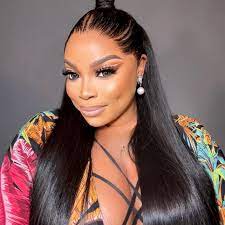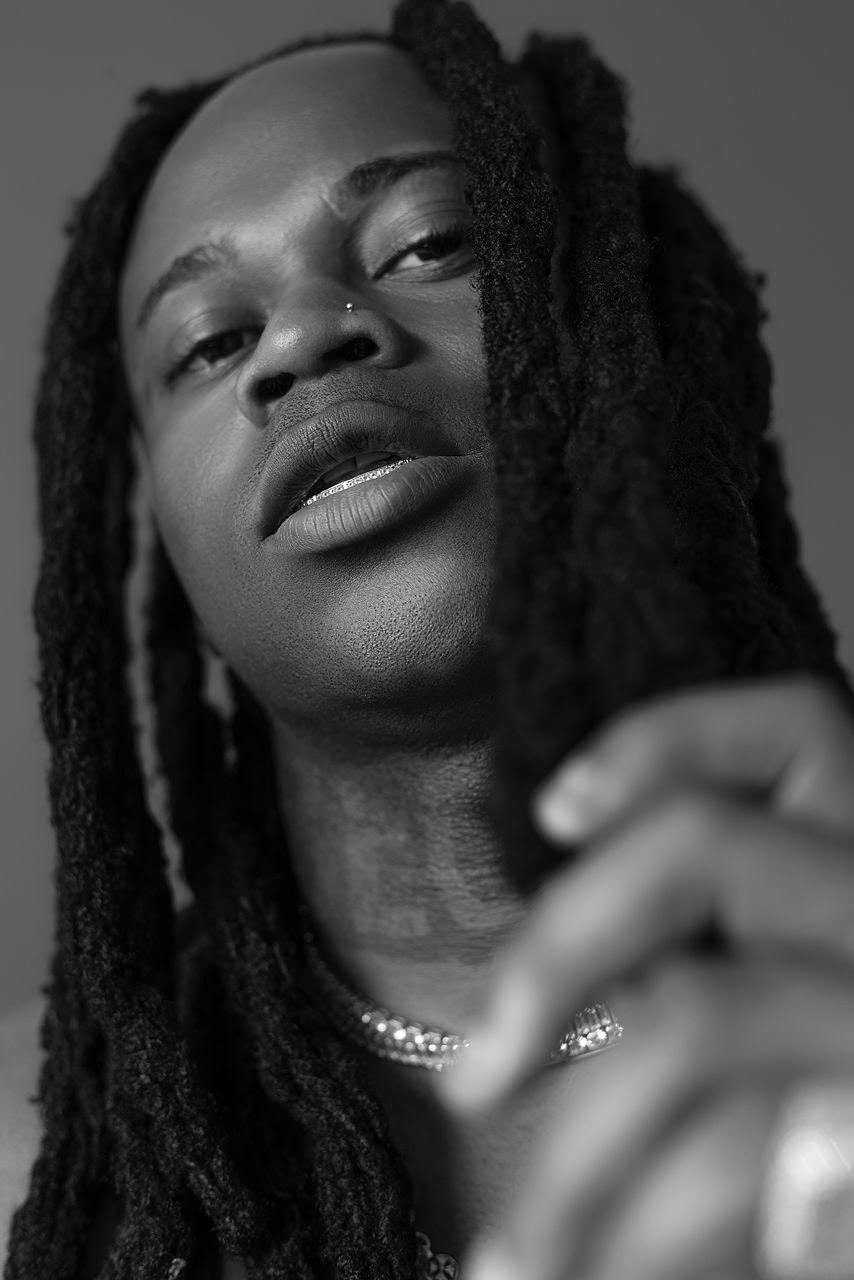Georgina Ibeh’s Bold Stand Against Industry Politics: Defending Creative Freedom in Nollywood

In the dynamic world of Nollywood, where creative voices are constantly clashing and collaborating, tensions sometimes emerge in surprising ways. Actress and filmmaker Georgina Ibeh recently voiced her frustration over an ongoing issue: colleagues dictating who she should cast in her films. In a bold move, Ibeh took to social media to condemn what she called “nonsense,” sparking conversation across the entertainment industry about the importance of creative freedom. Is this interference simply part of the Nollywood ecosystem, or does it represent a deeper problem within the industry? Let’s explore Ibeh’s stance and the wider implications of her call for independence in Nollywood.
Georgina Ibeh has become a notable force in Nollywood, building a career with standout roles and a reputation for excellence. From her early days as a budding actress to her current status as a producer, Ibeh has carved a niche by championing authentic storytelling. Her rise has been fueled by a commitment to quality productions and diverse casting choices, which has earned her both acclaim and a loyal fanbase. Her recent frustration with the industry reflects her commitment to these values, as she pushes back against practices that could stifle the creative process. Ibeh’s stance not only highlights her dedication to her craft but also positions her as a defender of artistic integrity within the film industry.
In Nollywood, casting is a crucial part of the production process and can significantly impact a film’s success. Yet, the casting process is often fraught with power plays, with industry insiders exerting pressure to influence who appears in specific roles. This is especially true in collaborative projects, where actors, producers, and directors may have differing views on casting decisions. Some actors believe casting should be based purely on talent and compatibility with the role, while others see it as a strategic opportunity to elevate specific talents within their network. Ibeh’s resistance to such interference sheds light on a growing trend in Nollywood, where casting choices can sometimes prioritize industry connections over genuine talent, leading to a form of creative gatekeeping.
One of Nollywood’s defining strengths is its diversity of stories and characters. Directors and producers who embrace creative freedom often push the boundaries of storytelling, leading to innovative films that resonate with audiences beyond Nigeria’s borders. When creatives like Ibeh are free to cast actors based on talent rather than external pressures, it allows for fresh perspectives and more authentic performances. This authenticity is one of the reasons Nollywood films have garnered international recognition. Creative freedom, particularly in casting, enables filmmakers to tell stories that feel genuine and relevant. By fighting for her right to make independent casting decisions, Ibeh is advocating for a Nollywood that remains true to its roots while growing its global footprint.
Nollywood, like many entertainment industries, has its share of cliques—networks of actors, directors, and producers who often collaborate within familiar circles. While these groups can foster creative partnerships, they can also limit opportunities for actors outside these circles. When casting becomes about personal connections instead of raw talent, it reinforces exclusivity and creates barriers for emerging talents. Ibeh’s vocal stance against colleagues attempting to control her casting decisions speaks to this issue. By challenging the notion that casting should be influenced by these networks, she’s standing up for a more inclusive industry where roles are earned based on merit rather than association. Her position resonates with those who feel that Nollywood should embrace diversity and talent from all corners of the industry.
For many creatives, speaking out against established norms can be risky, especially in a tight-knit industry like Nollywood. Yet, Ibeh’s willingness to call out these pressures sets an example for others facing similar challenges. By refusing to accept interference in her creative process, she’s drawing a line and encouraging others to set boundaries. This kind of transparency can be empowering for younger actors and filmmakers who might otherwise feel compelled to conform. In an industry where reputation and relationships are critical, Ibeh’s bold stance serves as a reminder that one’s creative vision should not be compromised. Speaking out, she demonstrates that holding firm to one’s principles can be a powerful tool in reshaping industry practices and fostering a culture of mutual respect.
Georgina Ibeh’s recent statements reflect a broader conversation about the need for creative independence in Nollywood. By challenging colleagues who attempt to dictate her casting choices, Ibeh is defending a fundamental aspect of filmmaking: the right to creative freedom. Her stance against industry politics not only reinforces her commitment to authentic storytelling but also advocates for a more inclusive Nollywood. In doing so, Ibeh has ignited a debate that encourages others to prioritize integrity and innovation over personal alliances. As Nollywood continues to grow, her message is a powerful reminder that respect for the creative process is essential in building an industry that celebrates talent, diversity, and genuine artistry.
!!!
-
 Fvreign – Feeling You
Fvreign – Feeling You
-
 ShugaVanilla’s Soulful Cover of “Waiting in Vain”
ShugaVanilla’s Soulful Cover of “Waiting in Vain”
-
 Stanley Abalu – It Shall Be Well
Stanley Abalu – It Shall Be Well
-
 Mo Eazy Unveils His Deeply Spiritual and Transformative EP ‘Ibẹrẹ’—Featuring the Uplifting Lead Single ‘Teriba’
Mo Eazy Unveils His Deeply Spiritual and Transformative EP ‘Ibẹrẹ’—Featuring the Uplifting Lead Single ‘Teriba’
-
 Ego Fire – Bololo
Ego Fire – Bololo
-
 Prophetess Chinwendu Israel – Ihe Inyoro Chukwu
Prophetess Chinwendu Israel – Ihe Inyoro Chukwu
-
 JAYO Records Announces the Release of Frenzyoffixial’s New Single “Cigarette” — A Raw and Emotional Exploration of Love and Escape
JAYO Records Announces the Release of Frenzyoffixial’s New Single “Cigarette” — A Raw and Emotional Exploration of Love and Escape
-
 Humblesmith Featuring Umu Obiligbo -Bolingo
Humblesmith Featuring Umu Obiligbo -Bolingo
-
 Frenzyoffixial – Cigarette
Frenzyoffixial – Cigarette
-
 KanBuja Ft. Monstarrboi – Kanbuja
KanBuja Ft. Monstarrboi – Kanbuja
-
 Rhedi – I Need
Rhedi – I Need
-
 Music: P-Rex – I get God Ft Derry
Music: P-Rex – I get God Ft Derry
-
 Bpm Boss – Omo Ologo (Prod By Tite Tunez)
Bpm Boss – Omo Ologo (Prod By Tite Tunez)
-
 Oluwasemilore – Working on Myself
Oluwasemilore – Working on Myself
-
 Tunde Omomeji – LOML
Tunde Omomeji – LOML
-
 ALBUM: Shaddy Jay – Voyage
ALBUM: Shaddy Jay – Voyage
-
 Music Minister, Ebi Gold Returns With, “Step In” New Single (+Lyric Video)
Music Minister, Ebi Gold Returns With, “Step In” New Single (+Lyric Video)
-
 FULL EP: Bobby Bankz – The Trada
FULL EP: Bobby Bankz – The Trada
-
 Ora Records Signs young star – BECINI
Ora Records Signs young star – BECINI
-
 Emeka Pavel – CMED (Catch Money, Escape Death)
Emeka Pavel – CMED (Catch Money, Escape Death)
Do you find Tmaq Media useful? Click here to give us five stars rating!
